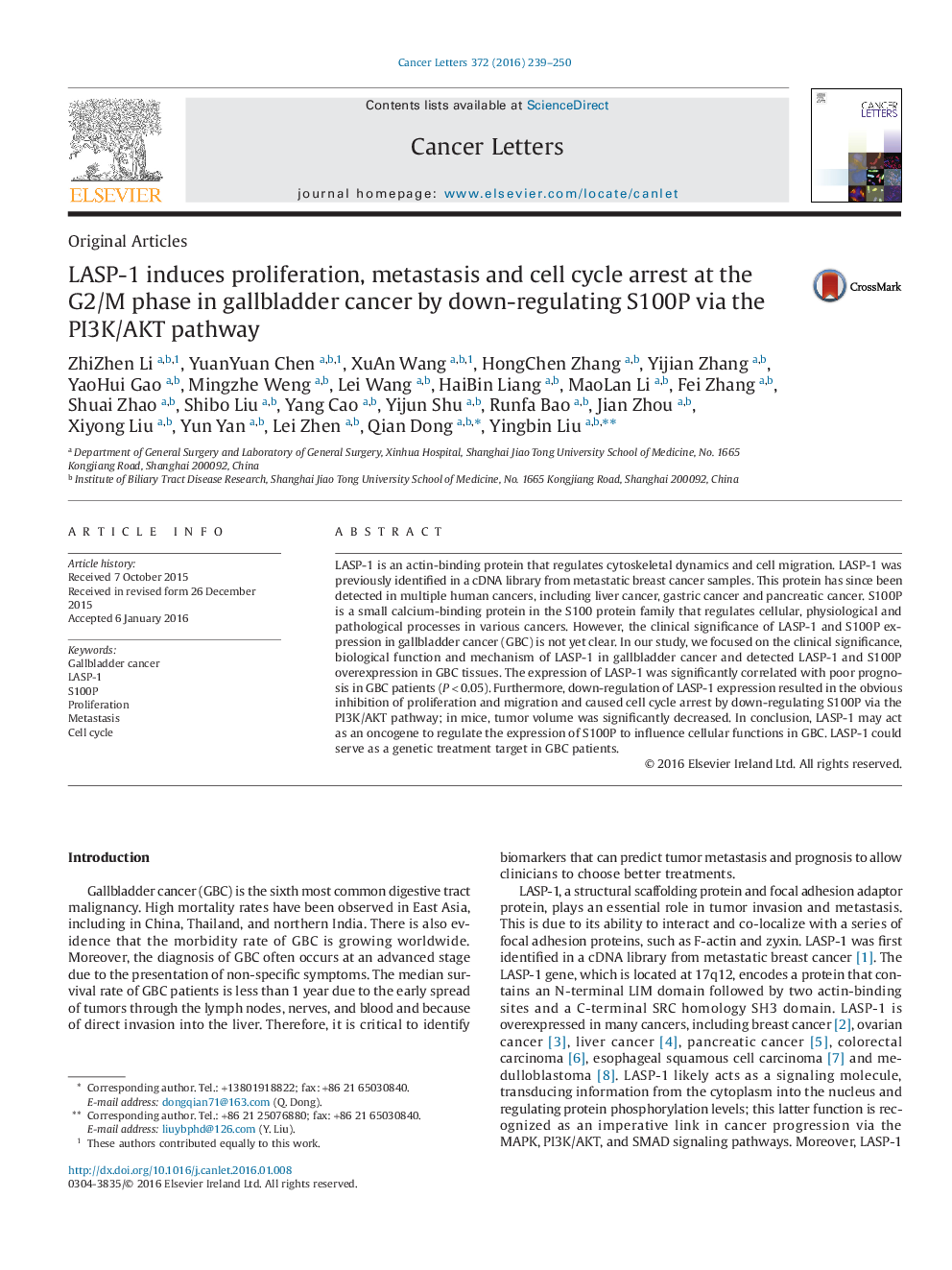| کد مقاله | کد نشریه | سال انتشار | مقاله انگلیسی | نسخه تمام متن |
|---|---|---|---|---|
| 2112399 | 1084374 | 2016 | 12 صفحه PDF | دانلود رایگان |

• This study investigated the effects of LASP1 and S100P on the growth of GBC cells.
• LASP-1 effects biological functions of GBC cells by down-regulating S100P via the PI3K/AKT pathway.
LASP-1 is an actin-binding protein that regulates cytoskeletal dynamics and cell migration. LASP-1 was previously identified in a cDNA library from metastatic breast cancer samples. This protein has since been detected in multiple human cancers, including liver cancer, gastric cancer and pancreatic cancer. S100P is a small calcium-binding protein in the S100 protein family that regulates cellular, physiological and pathological processes in various cancers. However, the clinical significance of LASP-1 and S100P expression in gallbladder cancer (GBC) is not yet clear. In our study, we focused on the clinical significance, biological function and mechanism of LASP-1 in gallbladder cancer and detected LASP-1 and S100P overexpression in GBC tissues. The expression of LASP-1 was significantly correlated with poor prognosis in GBC patients (P < 0.05). Furthermore, down-regulation of LASP-1 expression resulted in the obvious inhibition of proliferation and migration and caused cell cycle arrest by down-regulating S100P via the PI3K/AKT pathway; in mice, tumor volume was significantly decreased. In conclusion, LASP-1 may act as an oncogene to regulate the expression of S100P to influence cellular functions in GBC. LASP-1 could serve as a genetic treatment target in GBC patients.
Journal: Cancer Letters - Volume 372, Issue 2, 28 March 2016, Pages 239–250